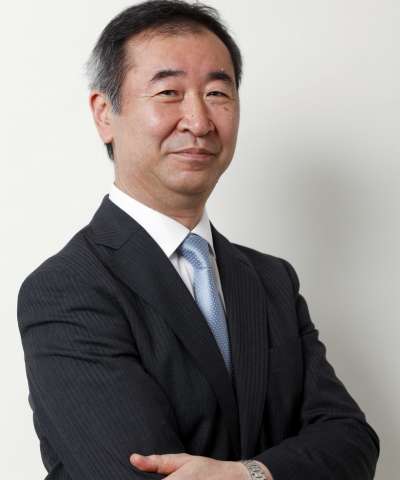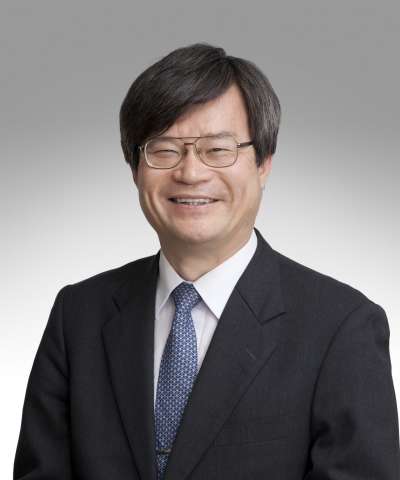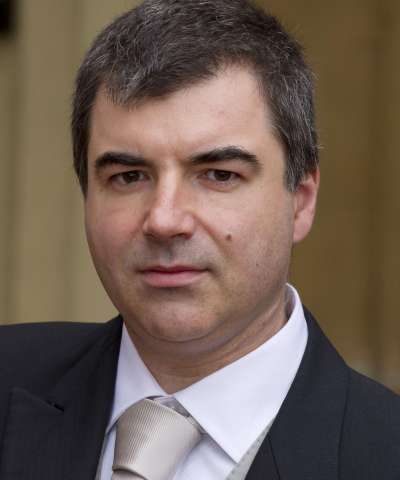Title: Special Plenary with Nobel laureates
Date: September 29 (Wed) 19:30 - 21:30 (JST) 10:30 - 12:30 (UTC)
Format: Online
[Nobel laureates]
Prof. Takaaki Kajita, awarded Nobel Prize in 2015 in Physics.
Institute for Cosmic Ray Research, the University of Tokyo, Japan.
Prof. Hiroshi Amano, awarded Nobel Prize in 2014 in Physics.
Institute of Materials and Systems for Sustainability, Center for Integrated Research of Future Electronics, Nagoya University, Japan
Prof. Sir Kostya Novoselov, awarded Nobel Prize in 2010 in Physics
Department of Materials Science and Engineering, National University of Singapore
[General Moderator]
Prof. Yoko Shimpuku, Hiroshima University
Program
Part I. Brief introduction of the Nobel laureates* and the purpose and how to proceed with the session.
Part II. Parallel panel discussions in the form of breakout session with each laureate. Each group will consist of eight young researchers from various fields and countries.
[Kajita Room]
Panelists:
Michael Saliba (Germany): Moderator
Mahesh Kumar (India)
Naim Rashid (Qatar)
Anet Režek Jambrak (Croatia)
Karen Cloete (South Africa)
MIYAUCHI Hisae (Japan, U of Tsukuba)
KAWASAKI Akio (Japan, AIST)
MIZUTANI Tadahito (Japan, JAXA)
CHEN Ye Japan, (KEK)
Discussion topics:
- Can science and technology solve global issues?
- What kind of message should scientists and engineers send out to the world now?
- How should science education for the future be designed?
- In today's scientific system, would you have made the same career?
[Novoselov Room]
Panelists:
AlmasTaj Awan (Brazil): Moderator
Ramia Al Bakain (Jordan)
Chandra Shekhar Sharma (India)
Markus J. Prutsch (Belgium)
Devina Lobine (Mauritius)
Bahaa Elgendy (USA)
WAGAI Rota (Japan, NARO)
KUBOTA Takuji (Japan, JAXA)
UEDA Akiko (Japan, AIST)
Discussion topics:
- How should science education for the future be designed?
- How will science, technology, and innovation (STI) develop in the 21st century?
- Is it important for scientists to engage with society beyond academia?
- Should we reconsider How we communicate science?
- How Can science education be more innovative? Is it important?
- What are the challenges In science and technology that will be realized or need to be realized In the future?
[Amano Room]
Panelists:
Arya Shalini Subash (India): Moderator
Fatemeh Mohammadipanah (Iran)
Clarissa Rios (UK)
Pradeep Kumar (South Africa)
Matthew C Levy (USA)
Alma Hernández-Mondragón (Mexico)
DOI Hiroto (Japan, U of Tsukuba)
YAMAGUCHI Rintaro (Japan, NIES)
TAGUCHI Hitoshi (Japan, NIED)
Discussion Topics:
- Can science and technology solve global issues?
- How will science and technology develop in the 21st century?
- What are the challenges In science and technology that will be realized or need to be realized In the future?
- What are the responsibilities of scientists and engineers on global issues?
*The introductory videos created by the Nobel laureates prior to the session are now available for registrants.
Please log in to my page of this site and check "NES FOR YOU" of P-3 session.
[登壇するノーベル賞受賞者]
①梶田隆章 東京大学教授、日本学術会議会長 (2015年ノーベル物理学賞)
②天野浩 名古屋大学教授(2014年ノーベル物理学賞)
③Kostya Novoselov シンガポール国立大学教授(2010年ノーベル物理学賞)
[総合司会] 新福洋子 広島大学教授
[プログラム]
第1部:
受賞者の紹介*・セッション趣旨、進め方を説明します。
第2部:
受賞者ごとにブレイクアウトし、パラレルグループディスカッションを行います。
グループメンバーは各8名、12か国からの様々な専門をもつ若手研究者からなります。
【梶田教授グループ】
〇Michael Saliba(ドイツ):モデレーター
・Mahesh Kumar (インド)
・Naim Rashid (カタール)
・Anet Režek Jambrak (クロアチア)
・Karen Cloete (南アフリカ)
・MIYAUCHI Hisae (日本, 筑波大学)
・KAWASAKI Akio (日本, 産業技術総合研究所)
・MIZUTANI Tadahito (日本, 宇宙航空研究開発機構)
・CHEN Ye (Japan, 高エネルギー加速器研究機構)
ディスカッションのトピック:
- Can science and technology solve global issues?
- What kind of message should scientists and engineers send out to the world now?
- How should science education for the future be designed?
- In today's scientific system, would you have made the same career?
【Novoselov教授グループ】
〇AlmasTaj Awan(ブラジル):モデレーター
・Ramia Al Bakain (ヨルダン)
・Chandra Shekhar Sharma (インド)
・Markus J. Prutsch (ベルギー)
・Devina Lobine (モーリシャス)
・Bahaa Elgendy (アメリカ)
・WAGAI Rota (日本, 農業・食品産業技術総合研究機構)
・KUBOTA Takuji (日本, 宇宙航空研究開発機構)
・UEDA Akiko (日本, 産業技術総合研究所)
ディスカッションのトピック:
- How should science education for the future be designed?
- How will science, technology, and innovation (STI) develop in the 21st century?
- Is it important for scientists to engage with society beyond academia?
- Should we reconsider How we communicate science?
- How Can science education be more innovative? Is it important?
- What are the challenges In science and technology that will be realized or need to be realized In the future?
【天野教授グループ】
〇Arya Shalini Subash(インド):モデレーター
・Fatemeh Mohammadipanah (イラン)
・Clarissa Rios (イギリス)
・Pradeep Kumar (南アフリカ)
・Matthew C Levy (アメリカ)
・Alma Hernández-Mondragón (メキシコ)
・DOI Hiroto (日本, 筑波大学)
・YAMAGUCHI Rintaro (日本, 国立環境研究所)
・TAGUCHI Hitoshi (日本, 防災科学技術研究所)
ディスカッションのトピック:
- Can science and technology solve global issues?
- How will science and technology develop in the 21st century?
- What are the challenges In science and technology that will be realized or need to be realized In the future?
- What are the responsibilities of scientists and engineers on global issues?
*セッションに先立ってノーベル賞受賞者の方々が作成されたご自分の紹介ビデオを参加登録者向けに案内しております。
本サイトログインしていただき、P-3セッション登録者向けの「NEWS FOR YOU」をご確認ください。





